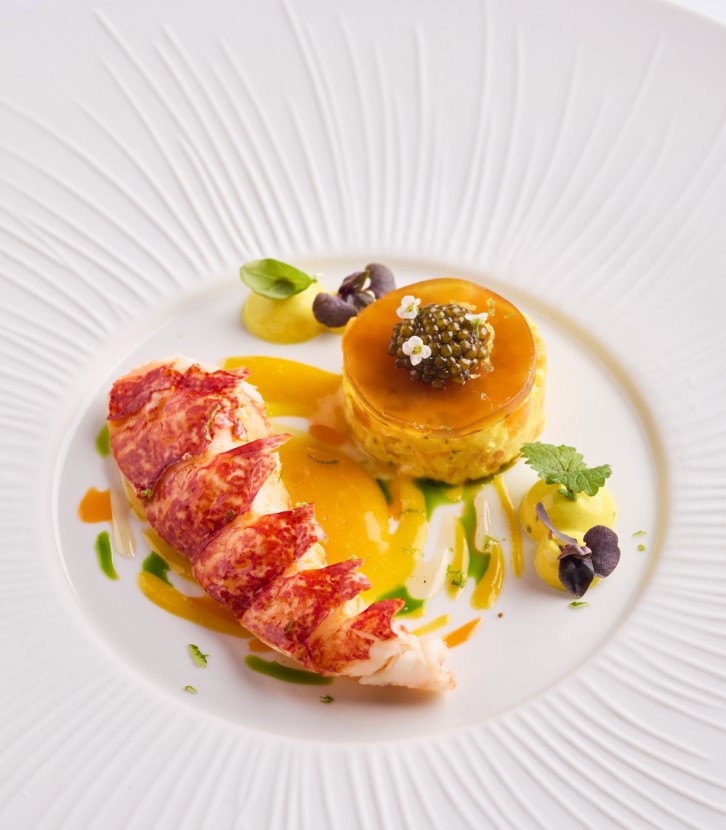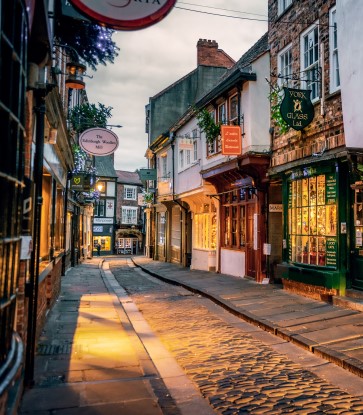The Bib Gourmand award is our way of recognising restaurants that offer good food at a great price. While all Bib Gourmands are unique in style and approach, they share the same spirit of generosity and a commitment to quality cooking. That’s why, in this series, we’re highlighting the MICHELIN Guide Inspectors' Bib of the Month. These restaurants are the bedrock of our selection, providing an affordable dining option that doesn’t skimp on precision, skill or flavour. From cosy pubs to buzzing counters, we’ve got a Bib for you.
Our latest Bib of the Month is the fabulous pahli hill in London's Fitzrovia. One of several Indian restaurants in London with a Bib Gourmand, it is a shining example of the capital's excellent South Asian cuisine and the brilliant value it offers.
This is what one of our Inspectors had to say on how to make the most of your visit to pahli hill:
“A good night out at Pahli Hill should always start with a cocktail in their subterranean Bandra Bhai bar. Here, the drinks are simply named after the main ingredient: ‘Date’ is a warming, smoky concoction, while the non-alcoholic ‘Pomegranate’ is vivid and refreshing. When it comes to the food, the menu may traverse India but the kitchen shows plenty of respect for traditional regional flavours. For example, anyone lucky enough to have visited the coffee plantations of Coorg will appreciate the succulent pork shoulder dish made all the more memorable thanks to the use of local speciality kachampuli vinegar. You can expect great produce from the British Isles too, such as Cornish lamb for the biryani and Scottish langoustine for the shorba. The home-style curries are also rich and rewarding, and the breads are great too. Come with friends and you’ll leave feeling good about life.”

To understand a little more about their processes and ethos at pahli hill, we spoke to Chef Avinash Shashidhara (Avi) about his approach to cooking, his signature dishes and the restaurant's basement cocktail bar.
What was the idea behind pahli hill? How would you describe your approach to food and cooking?
Pahli hill gets its name from an area in Mumbai called Pali Hill. It is a melting pot of people from all over India, different cultures and most importantly diverse cuisines. The food at pahli hill represents just that – food from homes in India using the best of British and European seasonal ingredients.
My ethos for cooking and food has always been ingredient-led, which means seasonality, sustainability and the quality of produce has been a priority. I also draw inspiration from the lesser-known dishes and home cooking in India, which for me is the true expression of Indian cuisine.
Why do you choose to showcase dishes from across a range of Indian regions, rather than focus on one specific cuisine?
Each region in India boasts its own unique flavours, ingredients and cooking techniques; so by featuring dishes from across the country, I can offer my guests a more comprehensive and authentic culinary experience. By showcasing a variety of regional cuisines, I can also educate and expose my diners to the vast array of flavours and dishes that make up Indian cooking. Ultimately, my goal is to celebrate the diversity and beauty of Indian food and share that with as many people as possible.

What is the dish to order at pahli hill?
Every dish at pahli hill is unique and there isn't a single dish that I wouldn't order. Some of our seasonal dishes I would order right now are the stuffed morels with wild garlic, broad beans and a creamy tomato sauce, and the Alphonso mango cheesecake. Some of our classic dishes are the papadi chaat, the braised Coorg pork shoulder and the Dorset crab sukkah with Mangalore buns. The carrot halwa is a great way to finish.
How are you able to keep your prices affordable?
With rising import costs after Brexit, soaring energy bills and staff costs, the margins have been tight. However, we try to use produce that is seasonal and local, limit the wastage to a bare minimum and use under-used cuts of meats like shoulder of pork or rump of lamb rather than the prime cuts.
Customers can also expect a wide price range for our wine programme curated by Henna Zinzuwadia, starting with our house wines priced from £8. We are committed to keeping our prices affordable by maintaining strong relationships with our suppliers, allowing us to negotiate competitive pricing and special deals, which we then pass on to our customers. For high-end wines, we are dedicated to keeping our margins low in order to make these premium selections more accessible to our customers. We believe that everyone should have the opportunity to experience exceptional wines, regardless of their budget, and we strive to make this possible through our pricing strategy.
Overall, the goal is to provide a diverse and affordable selection of wines that cater to a variety of tastes and budgets. Another reason for our wine program being affordable is our commitment to regularly reviewing and updating our wine list. By constantly assessing our inventory and sourcing new, value-driven options, we are able to find cost-effective wines that still deliver on quality and taste. This dedication to staying current and offering a diverse range of options allows us to provide affordable choices for our customers without compromising on quality.

Can you tell us a bit about your cocktail bar, Bandra Bhai?
The ambiance at Bandra Bhai is a nod to a bygone era, with patrons feeling like they have stepped into a secret hideaway where they can enjoy the carefully crafted drinks in luxury, surrounded by retro artwork and velvet upholstery – where the attention to detail is in every aspect of the bar, from the vintage décor to the hand-cut ice cubes. Head Bartender Tamás Horvath has worked no small amount of magic with a refined list of ten cocktails and four non-alcoholic drinks, gently reworking classic favourites until they sing with a personal touch. Each drink is ingredient-led and aims to pair well with the bold spices and flavours coming out of the kitchen.
Bandra Bhai is a hidden gem of a destination for those looking for an innovative drinking experience, with a menu that evolves with the seasons and the freshest, highest quality produce available. It also looks to pay homage to classic Indian drinks, such as mango lassi, which takes the form of our clarified ‘Mango’ cocktail, consisting of vodka, Alphonso mangoes and Greek yoghurt.
Can you tell us about your Great British Menu winning dish ‘Scrambled snake by the lake’, which is still served on your menu?
It’s a very popular street food dish called papadi chaat which represents the colourful lake. I feel it is a true representation of Indian food as it’s from the streets of India and an explosion of colours, textures and flavours. My version has 15 elements to the dish including papadi on the base, which is in the form of biscuity and crunchy discs, seasoned yoghurt, chopped Bombay onions, datterini & merinda tomatoes, mint chutney which is fiery and fresh, tamarind chutney that is sweet and sour, two textures of sev, roasted delica pumpkin, beetroot, fresh coriander, pomegranate and finally chaat masala and other spices. The snake garnish is called chakkali in my mother tongue, Kannada, and is made with rice flour, roasted chickpea flour, chilli, cumin and sesame seeds.



















